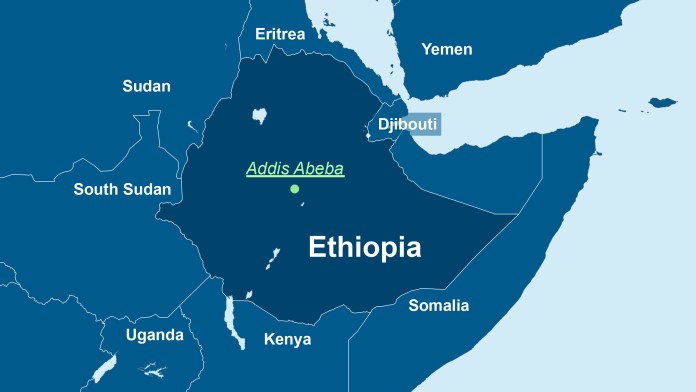
With over 110 million inhabitants, Ethiopia is an important factor in the political and economic development of the entire region in the Horn of Africa. The large landlocked eastern African country is one of the least developed countries in the world: in the current Human Development Index, it ranks 173rd out of 189 countries. The majority of Ethiopians work in agriculture, mainly consisting of subsistence farming. Since November 2020, there have been violent conflicts between the central government and the Tigray People’s Liberation Front (TPLF), as well as increasing violent ethnic and political conflicts throughout large parts of the country.
The country is affected by several crises at the same time. In addition to the conflicts in large parts of the country and the consequences of the COVID-19 pandemic, climate change is becoming visible in the Horn of Africa in the form of prolonged droughts, which are a serious threat to food security. Deforestation and unsuitable tillage also cause massive soil erosion, leading to the loss of agricultural land. This means that 26 million people are currently dependent on food aid, a trend that is increasing. All these factors have caused the country’s economic performance to slump, affecting societal cohesion and also impacting the labour market. Many young people have no vocational training and therefore hardly any chance of finding a job.
To help deal with the many crises, KfW Development Bank is supporting Ethiopia on behalf of the German Federal Government in the core issues
To offer young people better career prospects, KfW is supporting Ethiopia on behalf of the Federal Ministry for Economic Cooperation and Development (BMZ) to help expand the provision of vocational training. This will help to ensure that workshops are better equipped and teachers receive ongoing training in more than 90 vocational schools. In addition, there is a push for networking vocational schools more closely with the private sector, for example, by locating vocational schools on industrial estates.
In addition, KfW is working with the Development Bank of Ethiopia (DBE) to finance an innovative project that enables the leasing of agricultural machinery, such as combine harvesters. Larger farms lease these machines and, in turn, rent them out to smallholders, who use them to work their fields more efficiently. This benefits not only agriculture, but also the financial system, for which a new business sector is opening up.
Soil is also an important resource for successful agriculture. KfW has been supporting the “Sustainable Land Management” project since 2011, combining several measures to maintain fertile soil and restore the water balance.
Despite its own unique challenges, Ethiopia has been accepting refugees for many years. KfW is financing the connection of a refugee camp in Gambela to a public provider’s water supply system, replacing the costly supply of water by tanker; most of the refugees here come from South Sudan.
KfW is helping Ethiopia to offer people better living conditions despite climate change and the current conflict.
KfW Office Addis Ababa
Director KfW Office: Jonas Dylla
Kirkos Kifle Ketema
Woreda 8
P.O. Box 100009 Addis Ababa
Ethiopia
+251 11 51 80 24 1
Fax: +251 11 51 80 24 1